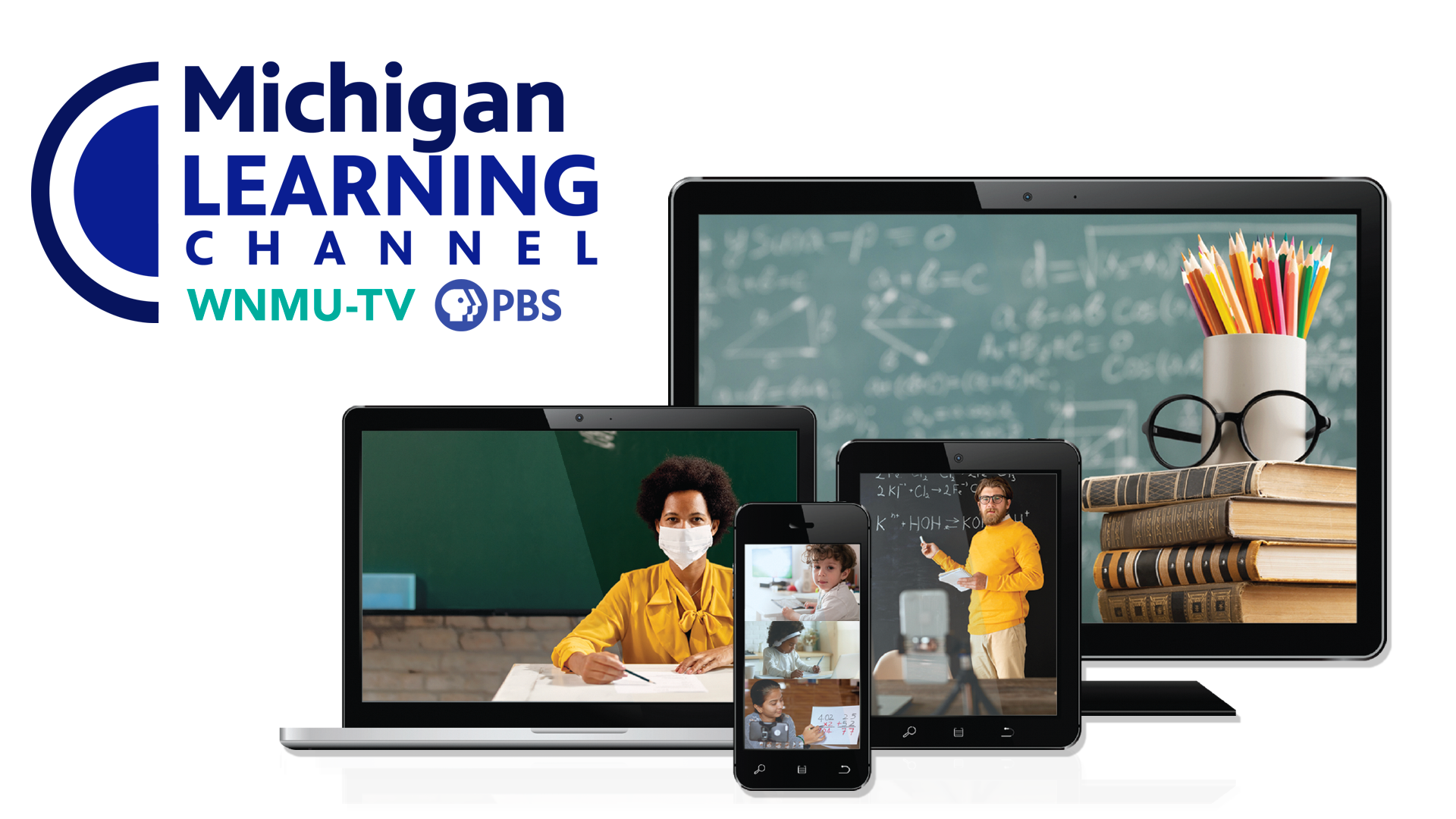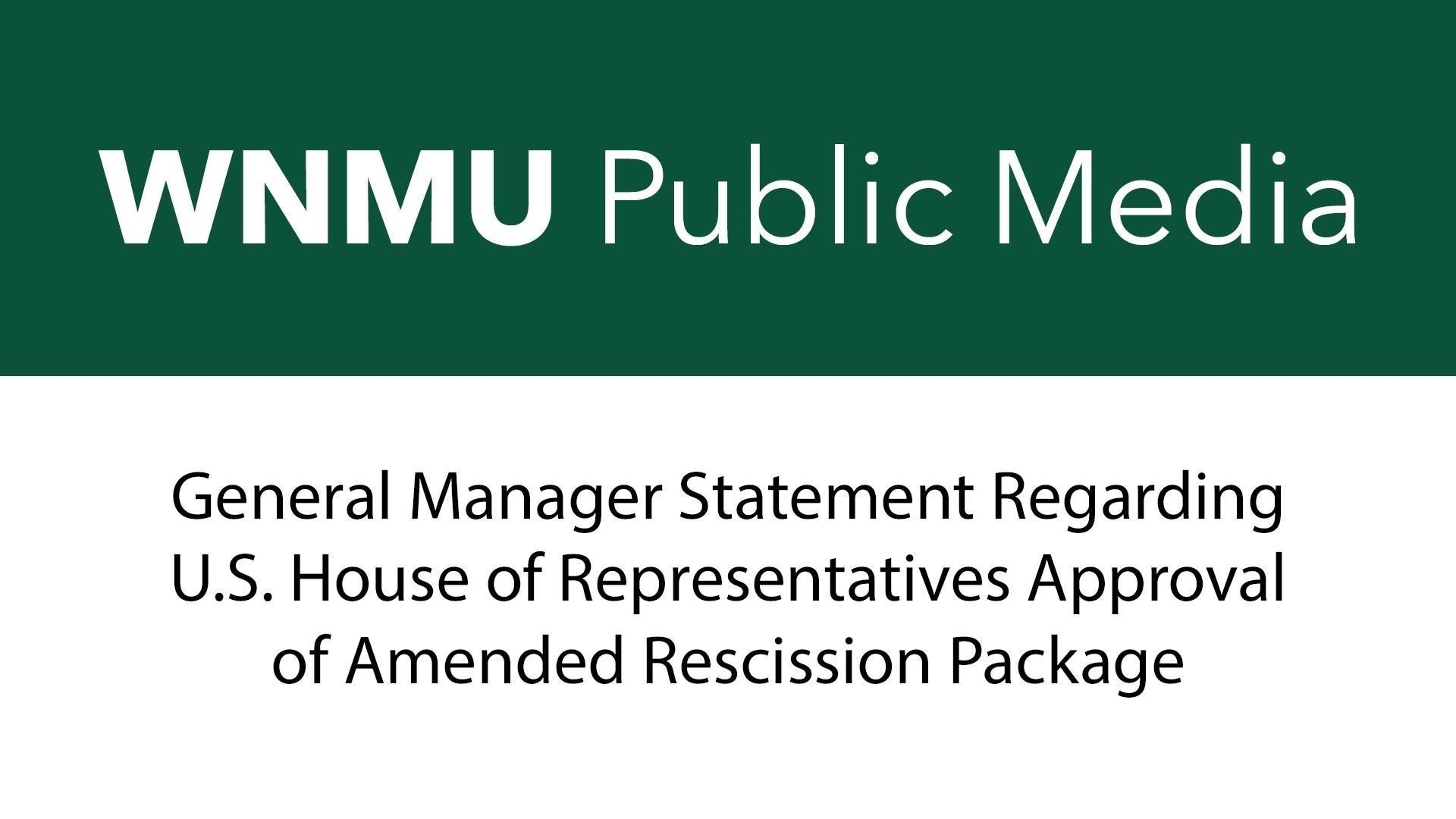Marquette, Michigan – Northern Michigan University's PBS station, WNMU-TV, joins Michigan's five other public television stations in launching the Michigan Learning Channel (MLC). The MLC, developed in partnership with leading educators and community leaders, delivers instructional programming to students, parents, and teachers 24 hours each day, seven days a week.
In the WNMU-TV viewing area, the MLC is available to tv antenna viewers over-the-air on channel 13.4. The channel is also live-streamed online at MichiganLearning.org and posted for on-demand viewing on various digital and social media platforms, including cell phones and other mobile devices.
The Michigan Learning Channel seeks to provide supplemental instructional material for use by students, educators, and families throughout the State. Program schedules are available to teachers, parents, and school administrators for integration with school curriculum and can be viewed at MichiganLearning.org/schedule.
The Michigan Learning Channel provides curriculum-aligned instructional resources for students and teachers and families, beginning with Pre-K up to 3rd grade. Program content is focused on literacy, math and social-emotional learning.
The MLC is unique because many MLC programs are produced explicitly with Michigan education experts' guidance and delivered by Michigan educators. Other programs come from nationally respected producers of instructional content.
Initial content available to Michigan families and educators includes:
- Math Mights: Using a variety of strategies to make math fun and promote the understanding of math processes for K-3rd graders from SIS4Teachers, a Michigan-based company
- Read with Me at Home: Literacy lessons produced by the Colorado Department of Education in collaboration with Rocky Mountain PBS, developed in response to school closures
- Let's Learn: Reading, math and science lessons for pre-K to 6th grade from WNET in New York
- INPact at Home: Exercise breaks designed to motivate kids to get up from their keyboards and get moving, produced by Detroit Public TV and the University of Michigan School of Kinesiology
- POPChecks: Short messages encouraging students to Pause, Own their feelings and Practice centering themselves, produced for the MLC by Mindful Learning, under the direction of social-emotional learning expert Carla PhilibertIn addition to the initial Pre-K to 3rd-grade schedule, supplemental content is broadcast for grades 4-12. Evening and overnight programming is also being scheduled for older students in grades 6-12. Weekends will feature a variety of programming from Michigan sources in social studies and science, as well as documentaries with educational resources.
Plans for the Michigan Learning Channel include adding more Michigan teachers providing content for primary and secondary education and eventually adding adult educational content, developed in collaboration with unions, community colleges, and universities. These programs would support the completion of college and career certification programs to help fill high-need positions in the workforce.
The Michigan Learning Channel concept has been endorsed by the Michigan Department of Education, the Michigan Elementary and Middle School Principals Association (MEMSPA), the Michigan Association of Intermediate School Administrators (MAISA), the Michigan Association of Superintendents and Administrators (MASA) and the Business Leaders for Michigan (BLM).
"From day one, the MLC has worked with leading people in the field of education and with a diverse cross-section of parents and concerned citizens to develop a plan that meets the evolving needs of families and teachers," said Eric Smith, WNMU Director of Broadcast & AV Services. "WNMU-TV has a long history of providing age-appropriate educational content in partnership with those closest to the communities we serve.
"The Michigan Learning Channel takes this one step further. We will use our various platforms – over the air, online, and through social media – to increase access to educational programming and resources at home, schools, daycare centers or wherever students may be. These programs will be beneficial to learners during our current pandemic but also useful teaching tools well into the future."
The MLC's instructional content is aligned with Michigan's educational standards and follows widely accepted sequences for mastering skills throughout the school year. MLC lessons are designed to support and enrich school learning and are presented by a diverse group of educators, generally delivered as if the teacher is in a classroom setting.
All content is offered at no cost to schools, families and caregivers. As new content is developed, it will be added to the Michigan Learning Channel platforms.
The Michigan Learning Channel does not seek to replace teachers. The service works best for students and families when programs are coordinated by teachers in concert with the school curriculum. In this way, the MLC can help support families and their children's learning while encouraging them to form strong partnerships with teachers and their local schools.
The Michigan Learning Channel emerged quickly in response to the disruption of traditional classroom procedures caused by the pandemic. However, the initiative is rooted in years of study and experience by broadcasters and their many partners in the field of education. The health crisis merely demonstrated the need to apply communication technology to fill disparities and gaps that already existed.
A report by The Education Trust – Midwest on the digital divide revealed that 35% of Michigan public school students have limited or no access to the internet from home. In some districts, the lack of internet access rises to as high as 55%, disproportionately borne by children of color and children in rural areas. In contrast, broadcast television reaches nearly every home in Michigan.
Even homes with good internet access may lack sufficient devices and/or bandwidth to accommodate parents working from home and multiple children seeking online instruction. Such instruction delivered via television provides a nearly universal alternative.
The public television stations collaborating on this effort are Detroit Public Television, WKAR Public Media from Michigan State University, Delta College Public Media, WGVU Public Media from Grand Valley State University, WCMU Public Media from Central Michigan University and WNMU-TV from Northern Michigan University.
Initial funding for the Michigan Learning Channel is provided by awards totaling $3.5 million; 43% or $1.5 million of the budget is through a grant from the Michigan Department of Education supported by the Governors Education Emergency Relief (GEER) Fund Grant, part of the CARES Act. The remainder is through funding from the Michigan State Legislature.




